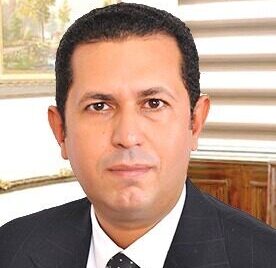Growing regional tensions raise questions about whether preventing the war in Gaza from expanding is possible.
These questions have become very pressing, especially after the assassination of Hamas’ political leader, Ismail Haniyeh, in Tehran after the inauguration of the new president of the Islamic Republic.
Regional conditions are bleak, the drums of a full-scale war keep beating, and the region teeters on the brink of a catastrophic war.
The British newspaper, The Spectator, has recently likened these conditions to a painful scene from the crime drama, The Gentlemen, by British director, Guy Ritchie.
The scene shows Freddy Horniman being humiliated by a gangster. It also shows that humiliation and violence can beget nothing but humiliation and violence.
The fact is that Haniyeh’s assassination caused humiliation to Iran. The Islamic Republic will most likely return the humiliation to Israel.
Despite the inflammatory rhetoric of the Iranian leadership, which calls for Israel’s annihilation and the liberation of Palestine, Tehran has so far appeared rational and cautious. It weighs its retaliatory response to avoid igniting a much bigger conflict.
Major powers closely watch Iran’s possible response, while Israel remains on high alert.
The Israeli government has advised citizens to stock up on food and water and instructed hospitals to prepare more beds in anticipation of possible escalation.
Tehran faces a major dilemma: it needs to avenge Haniyeh’s killing and deter Israel from launching further attacks on its territory. However, it wants to avoid a wider war, which leaves it with a nearly impossible task: responding without igniting an escalatory spiral.
Iranian leaders are aware that a direct escalation with Israel could widen the cycle of the conflict to Iranian and Lebanese territories and drag the whole region into more violence and instability.
Iran, a key ally of Hamas, may see Haniyeh’s assassination as an opportunity to mobilise political and military support for the Palestinians, as part of its confrontational strategy against Israel.
Israel, on the other hand, may consider this escalation part of its security policy to deal with what it views as a direct threat from Iran-backed Palestinian groups.
This is a critical time for the region. It makes it necessary for the international community to ratchet up pressure on contending parties to avoid escalation.
Major powers, especially the US, also need to step up their mediation efforts and call for dialogue to prevent the situation from getting out of control.
But whether the parties locking horns now can avoid a full-scale war and protect the region from the evils of such a war will transpire in the coming weeks.
Mohamed Fahmy is the editor-in-chief of The Egyptian Gazette and Egyptian Mail newspapers






Discussion about this post